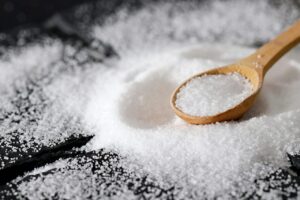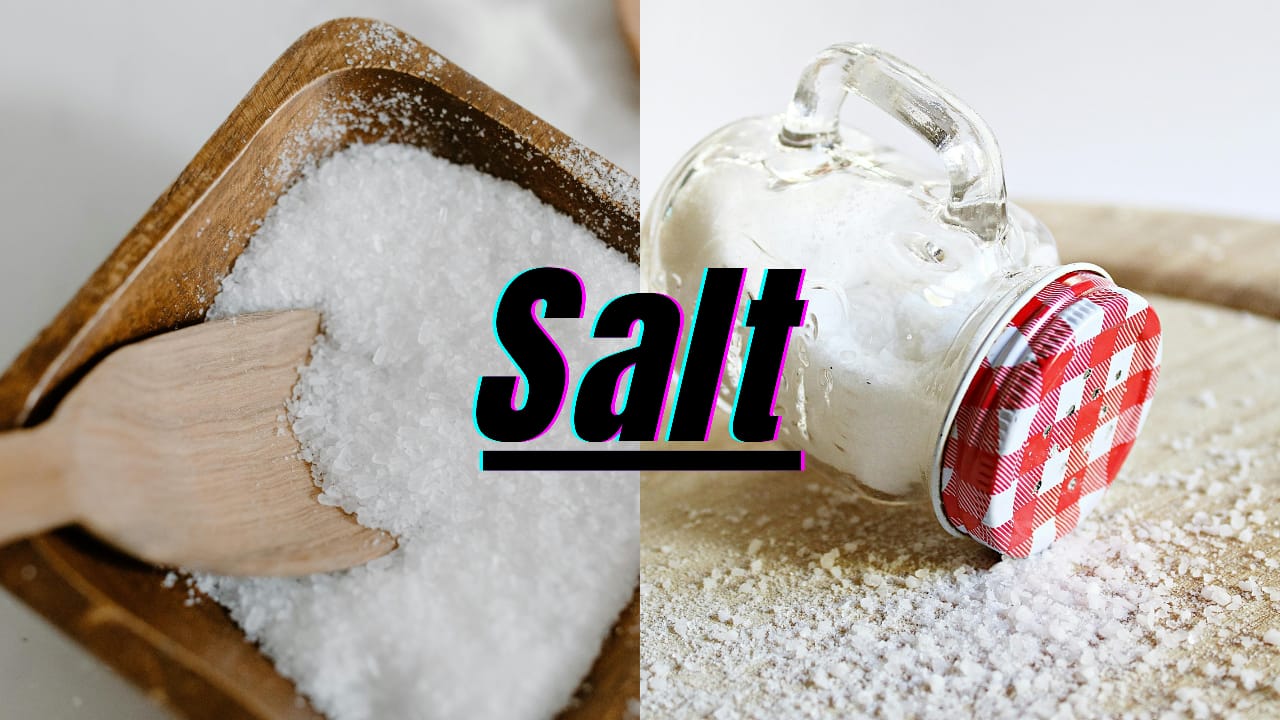
Salt is found in almost every person’s kitchen‘
. With salt, we can understand the taste of all kinds of food. Salt is an ingredient that if not used in cooking, the cooking becomes very bad. So salt plays a major role in our cooking. Salt brings a delicious attraction to food. This salt can do us a lot of harm. Salt can be consumed in small quantities but if used in excess, it becomes a risk to human life. Now we will know some side effects of salt below.
1) The Science of Salt and Sodium:
Salt is made up of sodium and chloride. Sodium is essential for vital functions like muscle contraction, nerve transmission, and maintaining fluid balance. However, the body only needs 500 milligrams of sodium per day, but the average person consumes more than 3,400 milligrams of sodium, most of which comes from processed foods. This excess stress puts stress on the body and gradually leads to chronic illness.
2) High blood pressure due to salt:
Excess sodium causes the body to retain water, which increases the amount of blood in the arteries. This results in high blood pressure (hypertension). High blood pressure forces the heart to work harder, which increases the risk of heart disease, stroke, and kidney failure.
** People’s thoughts:
In ancient times, salt was so valuable that it was used as currency. Today, it silently takes away people’s health, especially in low-income areas where cheap, salty processed foods dominate the diet.
3) How salt harms the body.
*Heart disease:
Eating too much salt is not good for our body. Salt needs to be fried. Eating too much salt increases our blood pressure, which in turn puts pressure on the heart and other organs. This can lead to heart attacks or heart disease.
Kidney problems:
Salt contains excess sodium. Our kidneys maintain the balance of salt and water. When we eat too much salt, our kidneys will have to work a lot. Now our kidneys will lose their ability to function and the kidneys will suffer from both diseases.
*Bone damage:
Salt can retain water in our body, which can cause bloating and swelling. It also affects the calcium levels in the body, which can weaken the bones over time.
4) Salt affects the brain:
The high amount of sodium in salt affects the blood vessels in our brain. As a result, blood flow decreases, which can also lead to memory loss. It also increases the risk of amnesia in the elderly and adults.
Short-Term Effects:
Increased blood pressure: Salt causes the body to retain water, which raises blood volume and can increase blood pressure.
Bloating and swelling: Extra fluid retention can cause puffiness, especially in the hands, feet, and face.
Thirst and dehydration: Salt pulls water from your cells, making you feel thirsty.
Headaches: In some people, salty foods can trigger or worsen headaches.
Temporary weight gain: Due to fluid retention, not fat.
5) Why We Crave Salt: (And How to Get Rid of It)
Salt triggers the release of dopamine in the brain—the same chemical involved in addiction. That’s why salty foods seem satisfying and hard to resist. But like any addiction, the more you eat, the more you need to feel the same effects.
**Tips for reducing salt without sacrificing flavor:
*Use herbs and spices like basil, garlic, cumin, and lemon.*Avoid processed foods; cook fresh foods at home.
*Check food labels for sodium content.
*Wash canned vegetables and beans.
*Eat fruits, nuts (unsalted), and yogurt instead of salty foods.
While salt is essential for life, overconsumption can silently harm the body. From increasing the risk of high blood pressure, heart disease and kidney damage to affecting mental well-being and bone health, the side effects of salt are widespread and serious. The modern diet, often full of processed and salty foods, makes it easy to unknowingly consume excess sodium.

